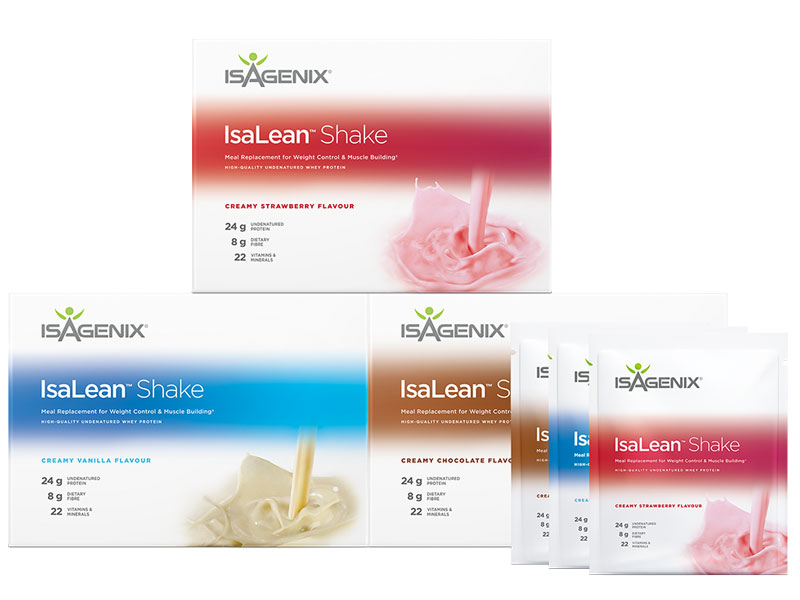Building Muscle for Beginners: Tips and Workouts to Get You Started
Are you ready to build lean muscle and move closer to your fitness and wellness goals?
Our experts put together a guide to muscle growth, including tips on muscle growth for beginners, muscle growth supplements, female muscle growth, and how to get started with a muscle growth routine.
The Best Tips for Building Muscle
1. Find a Workout Routine that Focuses on Muscle Growth
Whether you’ve never worked out in a gym or are a dedicated lifter, it is important to build a muscle growth routine around your experience.
Here are some tips on building a workout routine that is aimed at muscle growth and suited to your skill level and abilities.
Workout Guidelines for Muscle Growth for Beginners
Are you brand new to working out and intimate by a muscle growth routine? Don’t fret! Start small and work on gradually increasing your workout load.
Compound Exercises — movements that require multiple muscle groups to work in unison — can be particularly helpful for seeing results and working smarter, not harder.
- Workouts — Aim to do 2 to 3 strength workouts a week
- Sets — Do 1 to 3 sets of each exercise in your routine.
- Reps — 8 to 12 will typically be your ideal number of reps. This number will vary based on your muscle growth goals. To determine how heavy your weights should be, you’ll want to figure out something called your one-rep max.
This refers to the heaviest weight you could lift for a single repetition. If needed, a one-rep max calculator can be used to help you determine your one-repetition max weight. Once you determine this, you’ll want to lift between 65 to 75% of your one-rep max for 8 to 12 reps to help fuel muscle growth.
- Recovery Days — To build muscle as a beginner, make sure to take a full rest day after each workout. If you do intensive training focused on a single muscle group (i.e. arms), take 48 hours of rest in between before working the same area again.
Workout Routine for Muscle Growth for Current Lifters
If you have been strength training for six months or more, here are some guidelines to follow for continued muscle growth or to help you push through a plateau.
- Workouts — Aim for at least 3 strength workouts a week.
- Sets — As a more experienced lifter, you can do 3 to 5 sets or more, especially for compound movements.
- Reps — Even advanced lifters should stick to lifting 65 to 75% of your one-rep max for 8 to 12 reps.
- Recovery Days — Be sure to incorporate several rest days into your week, especially after especially intense or long workouts.
Whether you are focusing on muscle growth for beginners or are already an advanced lifter, here are some tips to remember:
- Always include a proper warm-up and cool-down with your workouts
- Practice progressive overload. This is the concept of continuously and gradually making your workouts more difficult. With each workout, focus on using a better form, lifting slightly heavier weights, trying new exercises, and challenging yourself. If you complete 12 reps of a move and it feels too easy, it is time to up the weight. Over time, these gradual progressions help lead to sustainable results and noticeable progress. Slowly increasing your exertion and the amount of weight you lift also ensures that you can maintain proper form and reduce your risk of injury.
- Focus on the eccentric part of each exercise. This refers to the descent of the weight. When you practise using slow, precise motions as you lower the weight, it puts an increased load on your muscles. When lowering yourself down into a squat or push-up, or when lowering your free weight, try to slowly count to three to help promote muscle growth.
- Don’t limit yourself to free weights or machines. Incorporate bodyweight movements into your training routine to help support muscle growth and keep your body guessing.
- Find the right balance between cardio and lifting to be sure you maximise muscle growth.
- Be consistent with your diet and your workouts
2. Eat for Muscle Growth
When it comes to eating for muscle growth, protein is key. The amino acids in protein act as the building blocks for muscle.
In general, it is recommended to eat 1.6 to 2.2 grams of protein per day per kilogram of body weight to maximize muscle growth.
For female muscle growth, it is suggested that women consume between 1.6 and 1.8 kilograms of protein per body weight per day.
Skipping meals, not eating enough protein, or not drinking enough water can all hinder muscle growth.
Along with eating enough protein through sources such as eggs, dairy, fish, and lean meats, it is also important to fuel your body with healthy fats and complex carbs. This ensures your body has the nutrients it needs to support muscle growth, replenish glycogen stores to provide energy for workouts, and nourish your body to support recovery.
To fuel muscle growth, you’ll need to consume more calories than you burn. Finding the right balance is key. The number of calories you’ll need to eat for muscle growth will depend on:
- Your weight
- Your workout routine
- Your metabolism
- Your goals
- Your body type
To fuel and nourish your body, aim to eat a small snack about an hour before working out. Aim for a mix of protein, complex carbs, and healthy fats.
Examples of post-workout snacks and meals for muscle growth include:
- Quinoa or oatmeal topped with healthy toppings (berries, coconut flakes, nuts, sliced banana)
- A veggie omelette featuring onions, spinach, mushrooms, asparagus, broccoli, and a side of sprouted toast
- A homemade smoothie packed with kale or spinach, fresh or frozen berries, avocado, unsweetened yoghurt, and a scoop of protein powder
- Cottage cheese and a side of fresh fruit
- Grilled chicken or salmon with roasted vegetables (asparagus, mushrooms, onions, etc.) on the side
- Whole-grain crackers topped with nut butter and a side of fresh berries
- A high-quality protein shake and an apple or banana
- Whole grain crackers with a side of celery or carrot sticks and hummus
- Fatty fish (salmon, anchovies, or sardines) and a side of starchy veggies (squash, sweet potatoes, etc.)
3. Find High-Quality Muscle Growth Supplements
Muscle growth supplements focus on nourishing the body with proven ingredients that support muscle growth, such as protein.
Since consuming enough protein is a key aspect of muscle growth, it is important to find an easy way to eat enough protein.
IsaLean Shakes were specifically created to support muscle growth by providing a convenient, cost-effective way to consume high-quality protein. Isa Lean Shakes are especially beneficial for individuals who often fall short of the recommended protein intake.
IsaLean Shakes are clinically proven, made from premium ingredients, and:
- Bursting with beneficial enzymes, minerals, healthy fats, and complex carbs
- Packed with 24 grams of undenatured whey protein designed to support muscle growth and maintenance
- Professionally formulated
- Designed to reduce cravings
- Formulated to support fat burning
- Completely delicious and indulgent (available in three tempting flavours: chocolate, vanilla, and strawberry)
- Available in dairy-free options
- Easy to combine into a superfood smoothie that is packed with nutrition and ideal for a healthy grab-and-go breakfast or post-workout snack
- Free of preservatives, fillers, soy, and gluten
- Free of artificial colours, sweeteners, and flavours
4. Rest, Rest, Rest
We often focus on workouts or nutrition as the most important part of muscle growth. But there is another equally important factor: rest.
Muscles consist of fibres that experience injuries during workouts. When these muscle fibres are repaired, they rebuild themselves stronger. This means the real muscle growth happens during the rest period, not necessarily the workout itself.
Studies show that adequate sleep and rest days are crucial aspects of muscle growth.
If you do not schedule recovery days into your training regime, or if you regularly skimp on sleep, you increase your risk of injury or decreased results due to overtraining.
To avoid overtraining:
- Do not participate in intense workouts two days in a row
- Aim to get 7 to 9 hours of sleep consistently (along with muscle growth, sleep is important for weight loss)
- Find active recovery activities for your rest days (swimming, light yoga, walks, or stretching)
- Incorporate muscle recovery tips into your training routine
- Manage your stress levels
Interested in Learning More About Muscle Growth?
We hope you found these tips for building muscle helpful. If you strength train 2 to 3 days a week, incorporate rest days into your workout routine, practice progressive overload, and fuel your muscles with adequate protein, you should start seeing muscle growth results.
If you would like to speak with one of our team members about additional muscle growth tips or personalised advice on muscle growth supplements, please contact us.
We are always available for your questions and would be happy to help create a nutrition and supplement plan tailored to your fitness and wellness goals.












